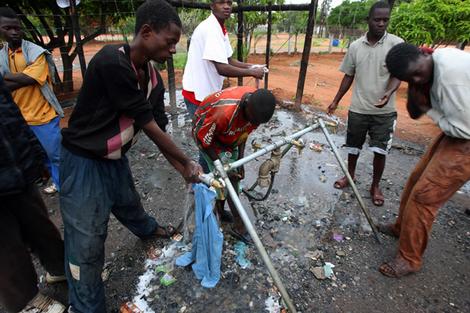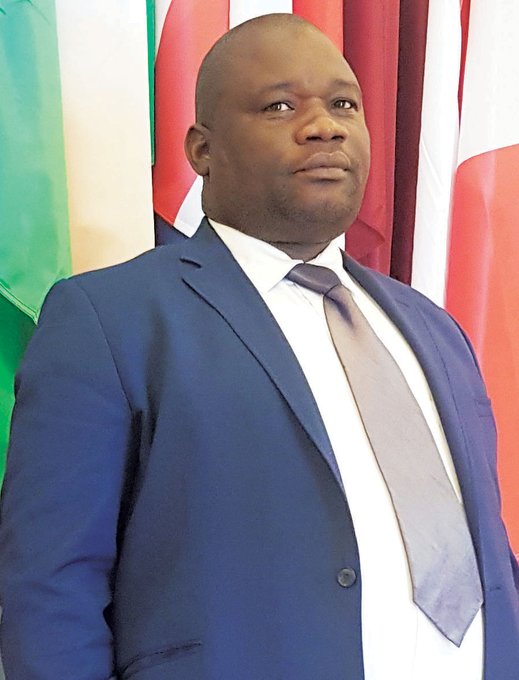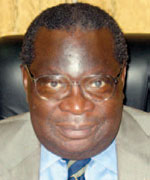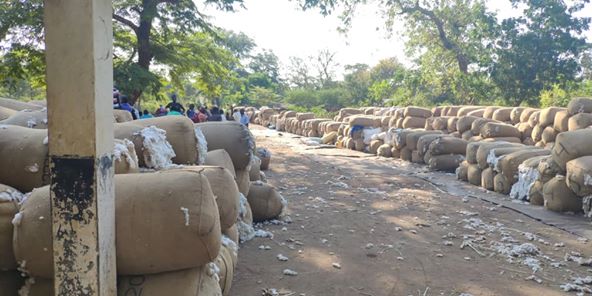Almost a year after Joyce Banda rolled into office as Malawi’s first female president, analysts and activists are asking whether she is doing a better job than her predecessor and former boss, the late Bingu Wa Mutharika.
Banda who went into the office with promises of good governance and economic prosperity seems to have done well in devotion to human rights and the rule of law but her marks have not been so high on the economy.
Some observers say that although Wa Mutharika – who died in office in April last year – was veering towards autocracy near the end of his tenure, the standard of living was generally better even for poor peasants, who make up eight out of every ten citizens of the country.
Anthony Kasunda of the National Media for Southern Africa (Namisa) which clashed repeatedly with state agents under Wa Mutharika says there is a very fine line between the two presidents in terms of policy.
“What we see is the continuation of policies pursued by the previous government. What has changed is the rhetoric from political players,” he said.
The toning down in rhetoric has encouraged political dissent and closer media scrutiny of the ruling elites leading to a marked decline in political malfeasance and greater respect for people’s rights.
“From that perspective, president Banda has brought change but when you look at the economy, one is tempted to think during the Wa Mutharika time, things were better.
“So it is difficult to say this one is better because both presidents have strengths and weaknesses,” he said.
Social and political development
Lilongwe resident Eliya Njewa agrees that Banda has not made any new economic, social or political changes, but insists she should be credited with tightening fiscal management and ending the profligacy of the Wa Mutharika era.
Malawi ranks among the least developed countries in the world with a Gross Domestic Product (GDP) of $14.5bn and is heavily dependent on tobacco exports for its sustenance.
The majority of the country’s 15 million people who live in rural economic backwaters and survive on less than $1 a day had hoped for a huge jump in their fortunes under Banda.
Banda promised to erase poverty by reviving the economy and stabilising social and political development.
Kasunda sniggered at suggestions that the Economic Recovery Plan (ERP) would help crank the choking economy back into life, arguing the much-vaunted farm input subsidy programme had only taken on 100 new beneficiaries while the social cash transfer programme was initiated by Wa Mutharika.
But Centre for Human Rights and Rehabilitation (CHRR) Executive Director Undule Mwakasungura lauded Banda for “bringing political sanity which was very poor in the past”.
“She has opened up democratic space for all to play regardless of which political party or any background they are coming from,” he said.
Mwakasungura refused to blame Banda for the floundering economy, saying she inherited a creaky system that would take a while to repair.
“Malawians should give the Joyce Banda administration enough time to reform the social, political and economic platform of the country…let her continue with the Economic Recovery Plan, more tangible results will be registered in the next few years if not then the critical voices can come out,” he said.
Rising cost of living
While a gamut of reforms were swiftly cobbled together and acted upon when Banda came into office, Mwakasungura said it would be too early to start writing the political obituary of the 63-year-old former secretary.
Banda’s adoption of a human rights culture and willingness to appease the International Monetary Fund (IMF) by putting the Bretton Woods Institution’s prescribed economic reforms back on track have endeared her to western donors, thus unlocking much needed foreign currency.
But this has come at a high price to the majority of Malawians who now struggle to cope with the continuous rise in the cost of food, especially bread and the staple maize meal.
Early this year, protests rocked the country, owing to the rising cost of living and plummeting approval ratings of Banda, who has tenaciously followed the prescripts of a $156m three-year IMF programme approved in July 2012.
The IMF told Banda to de-peg the Malawian kwacha from the dollar and scrap fuel subsidies and price controls.
“The IMF reforms are rejected by most Malawians, who see them as externally imposed by an IMF taking advantage of Malawi’s economic vulnerability and weak leadership in order to justify its own legitimacy at the expense of the poor,” said John Kapito, of the Consumers’ Association of Malawi.
Sharp decline in economic indicators
Democratic Progressive Party (DPP) Legislature member Kondwani Nankhumwa has no kind words for Banda insisting Malawians are economically and socially worse off under the mother of five’s watch than they were under Wa Mutharika.
“The economy is fragile; the reforms which have been introduced including the ERP have brought poverty to Malawians,” he said.
He said there has been a sharp decline in economic indicators since last year when the economy grew by 1.8%, the lowest Malawi has achieved since attaining independence from Britain in 1963 and is this year expected to grow by 5%, a far cry from the Wa Mutharika years.
Interest rates have jumped from at least 13% before Banda became president to 25% while inflation is now at 36.4% less than half its value in April 2012. Also, the local currency (Kwacha) is now trading at MK400 to one United States Dollar compared to MK167 in early 2012.
Nankhumwa said Banda had also presided over a slump in staple food reserves across the country, leasing to widespread hunger.
“This administration is worse; it has failed and needs to be changed.”
But Njewa was more cautious, saying: “It’s hard to conclude whether or not JB [Joyce Banda] is better than her predecessor Mutharika, after less than a year in power. We will have to wait for the next five years to make a fair comparison.” – News24





No comments! Be the first commenter?